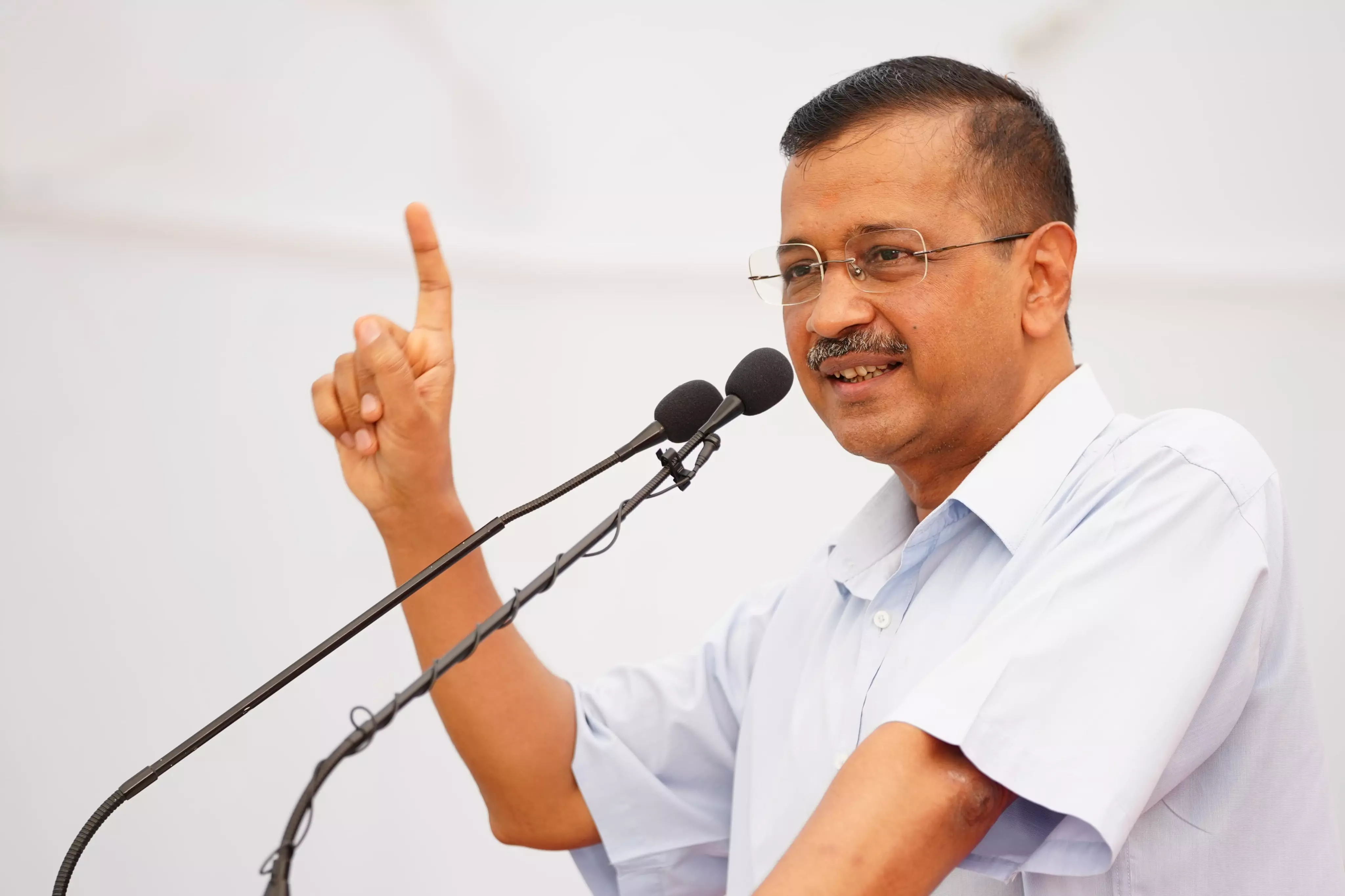AAP to Move SC against Stay on Bail for CM Kejriwal in Excise Policy Case

New Delhi: In a setback to chief minister Arvind Kejriwal, the Delhi high court on Tuesday stayed his bail in the excise policy case, holding that the trial court did not “appropriately appreciate” the material placed before it by the Enforcement Directorate while granting the relief.
A single-judge bench of Justice Sudhir Kumar Jain noted that the observations made by the trial court in the bail order were “uncalled for, unwarranted and out of context” and it should have followed “judicial discipline” by refraining from attributing malafide on the part of the ED in view of an earlier high court order supporting the absence of any such intent.
The high court said: “The vacation judge, while passing the impugned order (bail order) did not appropriately appreciate the material/documents submitted on record and pleas taken by the ED and the averments/grounds as raised in the petition under Section 439(2) of the Code require serious consideration while dealing with the said petition. Accordingly, the present application is allowed and the operation of the impugned order is stayed.”
Justice Jain, however, made it clear that nothing in the order should be taken as an opinion or observation on the merits of the main petition moved by the ED challenging the trial court order. The main matter is listed on July 10.
Reacting to the development, Delhi Cabinet minister Saurabh Bharadwaj said, “I think the high court bench was prejudiced. We will approach the higher court. Our legal team will decide the strategy and the time when we approach the higher court.”
The trial court, presided over by vacation judge Niyay Bindu, had granted bail to Mr Kejriwal on June 20, saying the ED failed to furnish direct evidence linking him to the “proceeds of crime” in the money laundering case.
The ED moved the high court the very next day and contended that the trial court’s order was “perverse, one-sided, wrong-sided” and that it was passed without granting it adequate opportunity to argue the case.
The high court had put in abeyance the operation of the bail order till the pronouncement on the issue of stay. Mr Kejriwal, meanwhile, approached the apex court against the interim stay on his bail. The top court fixed June 26 for hearing his plea against the stay, saying it will like to wait for the pronouncement of the high court order.
In the 34-page order, Justice Jain asserted that every court is under an obligation to give sufficient opportunity to the parties to present their respective case and, in the instant case as well, the ED ought to have been given adequate opportunity to advance arguments on his bail application.
Justice Jain said the trial judge neither discussed nor considered the arguments made by the ED, including those advanced in the written submissions. He said that the trial court also did not discuss and record its view with respect to the "twin condition" requirement under Section 45 of the Prevention of Money Laundering Act (PMLA) while granting bail.
Under Section 45 of PMLA, an accused can be granted bail subject to the “twin conditions” that the court is prima facie satisfied that he is not guilty of such offence and the prosecutor has been given an opportunity to oppose the application for bail.
The high court said that the issue regarding Mr Kejriwal's vicarious liability as the head of the AAP also did not find any place in the bail order. It said: “The perusal of the impugned order is reflecting that the vacation judge has passed the impugned order without going through and appreciating the entire material brought on record by the rival parties, which reflects perversity in the impugned order. There is factual force in the arguments advanced by additional solicitor-general S.V. Raju (for the ED) that the vacation judge has not passed the impugned order after due consideration of the entire material on record.”
At this stage, the high court stated that it cannot be said that Mr Kejriwal's arrest and remand are not in accordance with law and that his personal liberty was curtailed without following the established procedure. It also said the interim bail granted to the chief minister by the Supreme Court was not on merit but in the background of the Lok Sabha general election and therefore, his argument that he did not misuse the same is not of much help.

